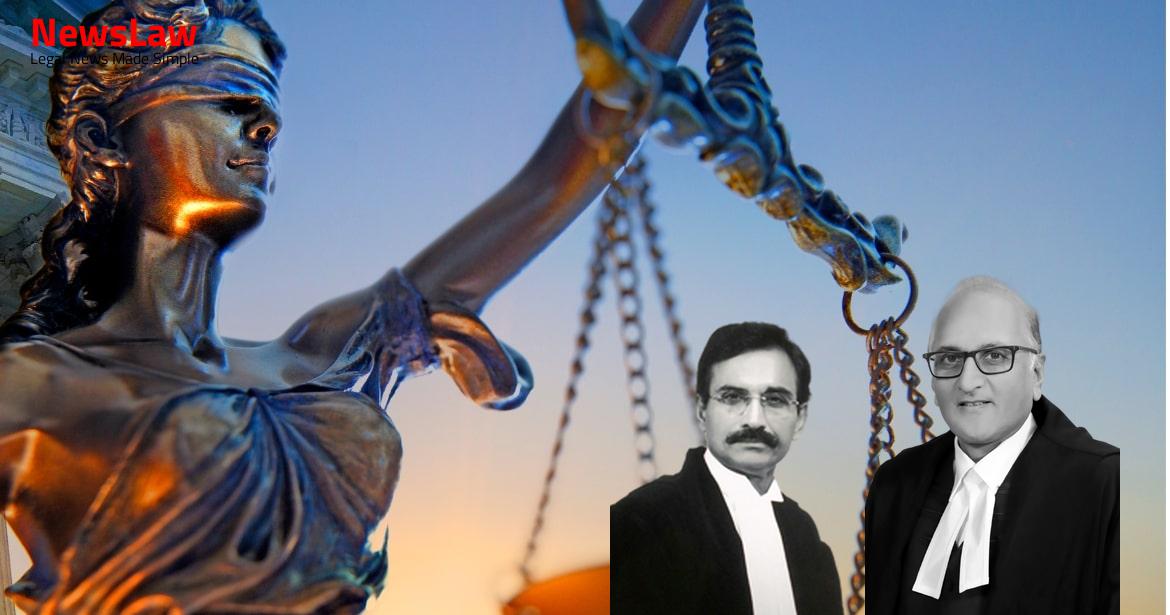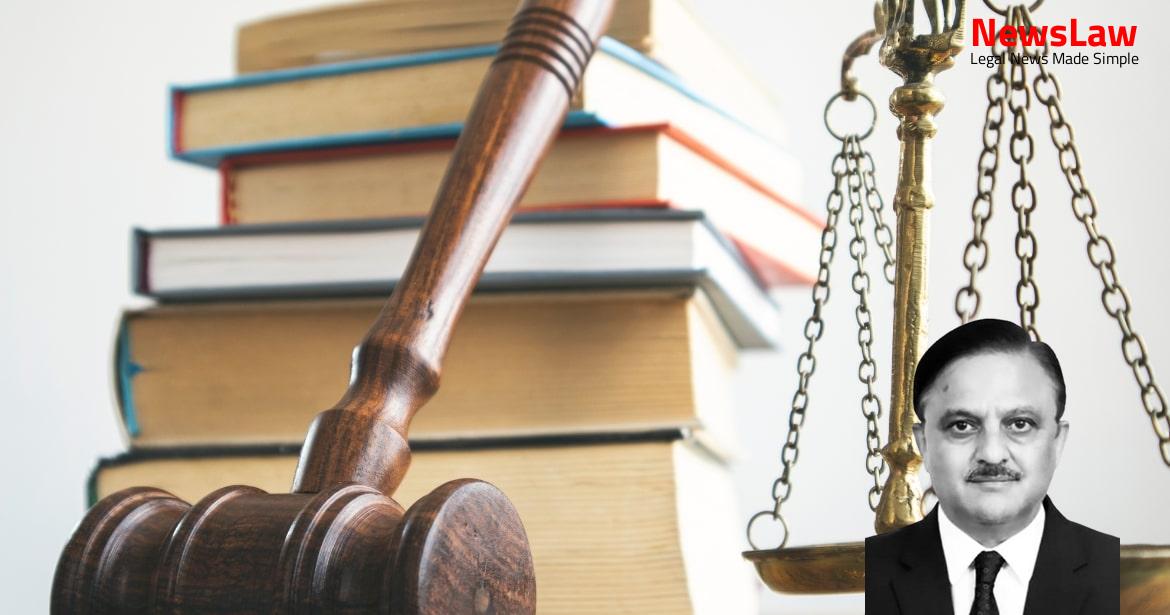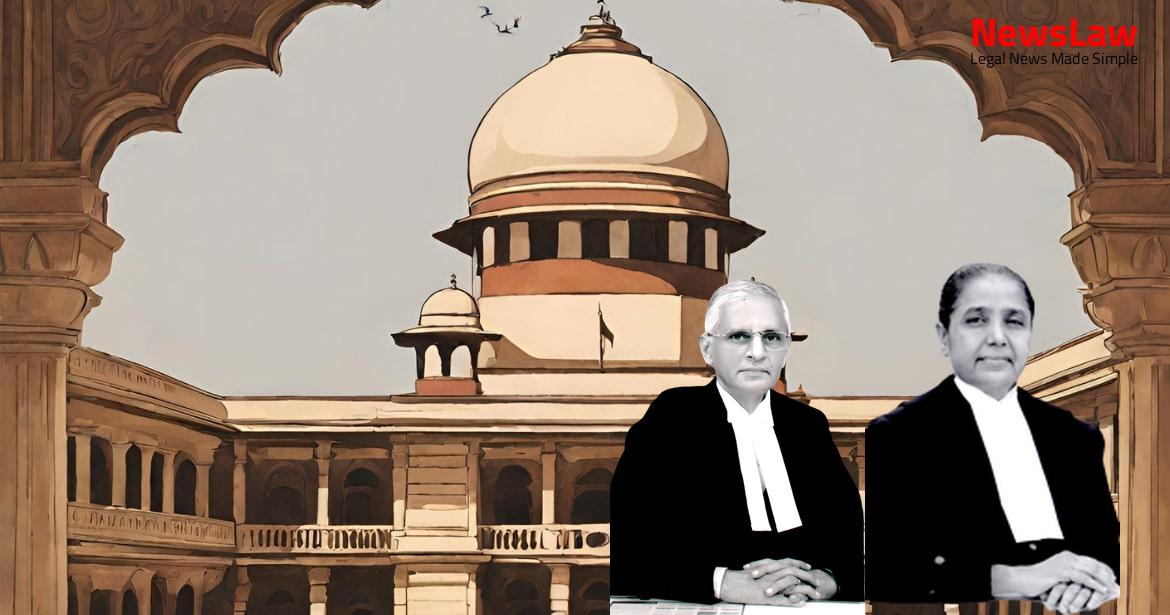In a recent decision by the Supreme Court of India, the case of Doe v. Roe has brought to light the issue of land title acquisition through adverse possession. The judgment, in favor of the plaintiff, has set a precedent in the realm of property rights. Stay tuned to learn more about this crucial legal development.
Facts
- The plaintiff’s arguments were found to be meritorious
- The judgement was in favor of the plaintiff
- The plaintiff’s appeal was allowed by the Court
Also Read: Urs Family Property Dispute: Supreme Court Decree
Issue
- The question of law in the present matters is significant.
- The issue at hand is crucial for the resolution of the case.
- The interpretation of the relevant legal provisions is essential for decision-making.
Also Read: Promissory Estoppel and Public Interest: Union of India vs. M/s Dharampal Satyapal Ltd.
Analysis
- Adverse possession confers title as owner in case the right of ownership is extinguished.
- A person can file a suit for recovery of possession within 12 years of adverse possession set up by the defendant.
- A person in possession acquires absolute title upon extinguishment of the owner’s title.
- A possessory suit can be maintained under Article 64 even before title is perfected by adverse possession.
- A plaintiff can take a plea of adverse possession with full particulars for limitation to be found.
- A person can sue based on adverse possession if another person infringes on their rights.
- No bar exists for a person to perfect title by adverse possession whether as a plaintiff or a defendant.
- A person’s possession cannot be ousted except by due procedure of law after 12 years of adverse possession.
- Title acquired by adverse possession confers absolute right which cannot be defeated upon dispossession.
- Tacking of adverse possession is possible for continuity of possession via purchaser, legatee, assignee, etc.
- The holder of a possessory title can maintain a suit under the Specific Relief Act.
- Title acquired by adverse possession has been upheld by several court decisions.
- Possession is key to title, and adverse possession must meet specific requirements to confer a right.
- Once rights are extinguished, a prescriptive right is acquired that cannot be defeated upon re-entry.
- Adverse possession protects the possessor who maintains and improves the land.
- A Three-Judge Bench of this Court has held that the plaintiff acquired the title by adverse possession and was entitled to recover the possession.
- The operation of the statute of limitation in giving a title is merely negative; it extinguishes the right and title of the dispossessed owner and leaves the occupant with a title gained by the fact of possession and resting on the infirmity of the right of others to eject him.
- The suit was filed by the plaintiff on 11.12.1981.
- Article 65 of the Act is extracted hereunder: 46.
- Nature of title acquired by adverse possession has also been discussed in the Halsbury’s Laws of England in Para 785.
- A suit filed by the plaintiff for declaration of title and also for a permanent injunction based on adverse possession.
- The same was affirmed by this Court.
- The statute does not define adverse possession; it is a common law concept, the period of which has been prescribed statutorily under the law of limitation Article 65 as 12 years.
- It was held by this Court that title was acquired by adverse possession based on invalid grant and the right was given to the claimant/applicant to claim compensation.
- The trial court decreed the suit on both the grounds, ‘title’ as well as of ‘adverse possession’.
- Under Article 64 also suit can be filed based on the possessory title.
- This Court has observed that a plea of adverse possession was indisputably governed by Articles 64 and 65 of the Act.
- A person in the possessory title can get injunction also, restraining the defendant from interfering with his possession.
Also Read: Jurisdictional Interpretation in Kamlesh Babu v. Lajpat Rai Sharma
Case Title: RAVINDER KAUR GREWAL Vs. MANJIT KAUR
Case Number: C.A. No.-007764-007764 / 2014



